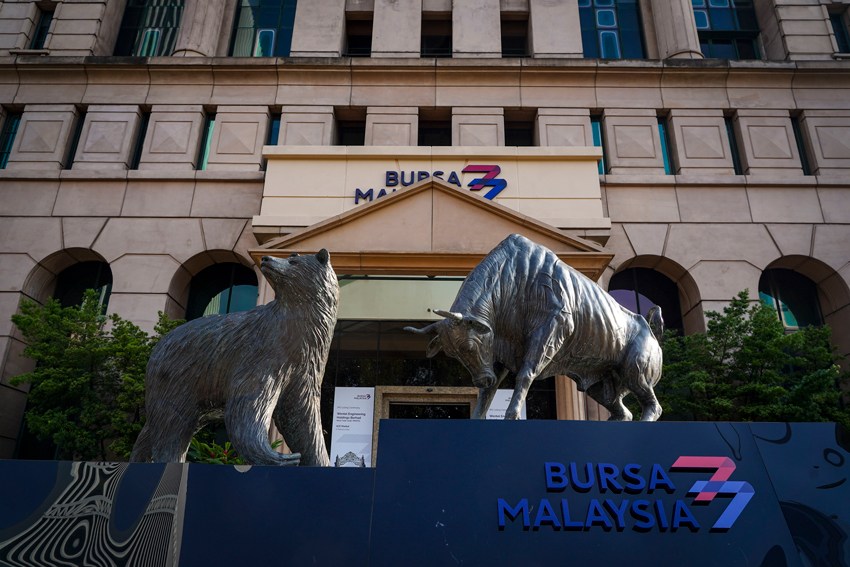By Ranjit Singh
This is the third part of a series of articles on Covid-19.
WE have faced economic downturns before but the scale of devastation brought about by the Covid-19 outbreak is deep. It started as a health crisis but has now morphed into a full-scale economic catastrophe as well.
The outlook is already bleak and could get worse. Latest estimates see the economy moving into recession and shrinking this year by 2.6% while the number of jobs lost could be 2.4 million, over 15% – one in six workers could lose their jobs, taking the unemployment rate close to 20% from the current 3%.
This scenario could get worse before it gets better if the effect of Covid-19 gets more serious. While there are positive signs as we reported yesterday (Covid-19: What the experts say to expect), this is a moving, fluid situation which can change at any time. We can’t even be certain of how bad the effect will be, with the Movement Control Order (MCO) being extended to April 14.
The low oil prices, with no sign that the producers will come to some sort of agreement, exacerbate the situation for Malaysia, while continued politicking and an unstable government just add on to the many risk factors already present.
The barometer of the market, the FBM KLCI, has lost some 326 points since the carnage began in the stock market mainly due to the virus outbreak which saw the index decline from 1,650 points at the beginning of the year to 1,324 points on March 25. Some RM260 bil had been wiped out from the bourse year-to-date.
At the time of writing, some 400,000 people globally had been infected by the virus, and more than 19,500 lives lost. Malaysia has reported 1,796 cases with 20 deaths so far.

According to the Ministry of Health, Malaysia is in the final stages of containment. On March 25, Prime Minister Tan Sri Muhyiddin Yassin announced an extension to the MCO, which started on March 18, till April 14. That indicates two things – the virus is not yet on a decline at the moment, which means social distancing and the MCO need to continue, and the economy will be more badly affected.
The main impact of the virus on the economy will be caused by the partial lockdown via the MCO, which will effectively lead to a substantial curtailment of economic activities. This is caused by the shutdown of non-essential sectors of the economy, resulting in a huge portion of the productive sector lying idle.
The most recent study on the impact of the economy is that by the Malaysian Institute of Economic Research (MIER). This said the economic impact of the Covid-19 outbreak showed that GDP (gross domestic product – sum of goods and services produced in a year) growth may shrink about 6.9 percentage points relative to the original 2020 baseline.
This translates into a -2.6% real (after taking into account prices) GDP growth for 2020, compared to the 2019 growth of 4.3%. The number of job losses (presumably mainly non-salaried jobs) could be in the region of 2.4 million, 67% of which are unskilled workers. The total labour force size in Malaysia is estimated to be around 15.28 million, and this means that some 15.7% of the workers in Malaysia may lose their jobs due to Covid-19.
To mitigate the economic effects, MIER proposes that the government set aside an extraordinary crisis budget comparable to the projected income losses of RM95 bil. Since RM20 bil had earlier been pledged, an additional RM75 bil will be needed.
The MIER study was done before the extension of the MCO and may not have fully factored in the further impact of this on the economy. It may be possible that the economy may decline by over 3% this year.
While MIER was talking about a total allocation of RM95 bil, this may need to be increased to well over RM100 bil. Such an allocation will be imperative especially to avoid company bankruptcies, loss of jobs, and impaired household incomes and better welfare through business support, SME rejuvenation and social safety net programmes.
MIER also said it was timely to revisit thoroughly the state of our agriculture. From an agricultural ecosystem characterised by our colonial legacy of commodity-based crops, we need to move on to food-based agriculture, especially in light of the nation’s food security and sovereignty. For this reason, it strongly recommends that the government consider establishing a National Food and Medical Supplies Stockpile funded by the government or in conjunction with the private sector through a Public Private Partnership (PPP) programme.
MIER expects that the recovery from this year’s projected economic recession due to the Covid-19 outbreak and implementation of the recommended stimulus package will result in a V-shaped recovery (as happened in all previous recessions since 1985), so that in 2021 we will see a better performance in the economy.
In anticipation of this, MIER recommends for the Perikatan Nasional government to reconsider bringing back the Goods and Services Tax with appropriate adjustments to its rate and coverage as well as improved mechanism in terms of collections and rebates, in its forthcoming 2021 budget, along with other related measures which will be introduced to Parliament later this year. This should provide a means to cover any shortfall in federal government revenues due to the lower expected oil receipts.
The government had on Feb 27 introduced an Economic Stimulus Package (ESP) valued at RM20 bil to mitigate the impact of Covid-19. Among other things, RM2 bil will be provided for SMEs by way of favourable financing packages.
In addition, the government had also announced that Employees Provident Fund (EPF) contributors could withdraw a maximum of RM500 per month from Account 2 for a period of 12 months from April. On March 25, it also announced a moratorium on all loan payments for SMEs and individuals for a period of six months beginning April.
The prime minister is expected to declare a second round of stimulus measures tomorrow.
Lower oil prices, a drag to the economy
The OPEC+ (Organisation of Petroleum Exporting Countries) talks on March 8 failed to reach a consensus on production outputs and this witnessed the collapse of global oil prices by more than 30%. At the time of writing, Brent crude oil was trading below US$30 per barrel.
The drastic drop in global oil prices spells bad news for Malaysia as a net oil exporter. When Budget 2020 was formulated in October 2019, the oil price assumption was US$62 per barrel. It is very apparent that the Budget needs to be re-calibrated and the government needs to plug the revenue leakage.
Tan Sri Munir Majid, former chairman at CIMB Holdings Bhd was reported as saying that the government should tap the banking sector for funds as the sector has ample liquidity, if it wants to boost the ESP.
“There is ample liquidity in the domestic banking system for the government to draw on for the ESP, without having to go to foreign markets and being exposed to currency risk. Some banks have the ability to expand their loan book by about 15%-18% of loan assets.
If this is extrapolated to the loans outstanding in the domestic banking system of RM1.77 tril as at January 2020, there is plenty that can be mobilised to finance disciplined government borrowing,” Munir was quoted as saying.
There are avenues for the government to raise funds. That’s one part of it. The important question is: how and to whom are the funds going to be channelled to?
Other parts in this series of articles:
Part 1: Covid-19: Softening the blow
Part 2: Covid-19: What the experts say to expect
Part 4: Covid-19: How the government should stimulate the economy









